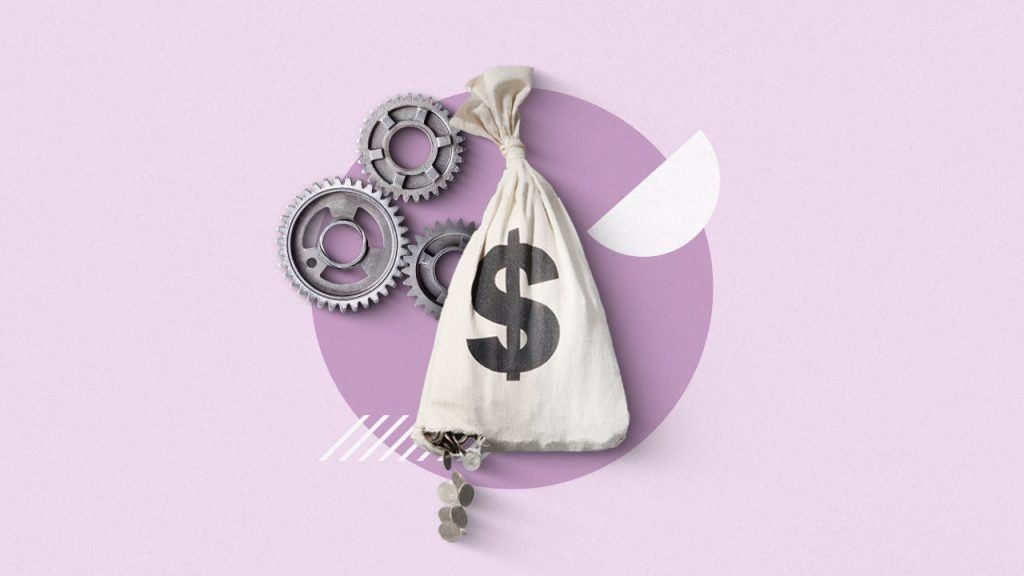Key takeaways
- Unsecured business loans are types of business loans that do not require collateral
- Lenders are more selective when it comes to offering some types of unsecured business loans and may require a personal guarantee or UCC lien
- Unsecured business loans can come in the form of term loans, business lines of credit, invoice factoring, and merchant cash advances
Many lenders will want you to offer business collateral when you apply for a business loan. But if you don’t have collateral, or you’d prefer not to use assets to secure a loan, you can get an unsecured business loan. You can use this type of loan for various purposes, such as expanding operations, purchasing inventory or covering unexpected expenses.
Several different business loans come without collateral. You should consider all the options before applying to ensure you make the best decision when getting an unsecured business loan.
What is an unsecured business loan?
An unsecured business loan is a type of business loan that doesn’t require any collateral. Collateral is an item of value that you use to secure a loan. Having collateral reassures the lender that you will pay the loan, or it can seize the asset to pay back the loan. But in some cases, you may want to protect your assets and not use them to secure a loan. This is where an unsecured loan comes in.
Because unsecured business loans have no collateral, the lender takes on more risk when lending money to companies. That’s why some types of unsecured business loans may have strict eligibility requirements or higher interest rates than secured business loans.
How unsecured business loans work
An unsecured business loan works similarly to other types of business loans. You submit an application, wait for the lender to decide, and if you’re approved, you get the cash and pay it back over time.
Since there isn’t any collateral involved, lenders are typically more selective about who they offer unsecured term loans to, especially if you want one with low interest rates. They also tend to ask the business owner to provide a personal guarantee. This is a promise to pay the loan back out of personal funds if the company defaults on the loan.
Other types of unsecured business loans have more relaxed eligibility requirements and limited loan documentation or are available to business owners with bad credit. This includes invoice factoring and merchant cash advances. But these types of bad credit loans come with a heavy cost, including high interest rates and fees.
Some lenders will also require a Uniform Commercial Code (UCC) lien. A UCC lien is a claim against your company’s assets. If your company fails to pay the loan, the lender will come after these assets to recover its losses.
Types of unsecured business loans
There are many different types of unsecured business loans. Term loans and business lines of credit are often considered the best unsecured business loans for business owners with good-to-excellent credit. But there are also unsecured business loans for bad credit borrowers. This includes invoice factoring and merchant cash advances.
Term loans
With a term loan, you apply for a loan, specifying the amount you’d like to borrow and often specifying the reason for getting the loan. If the lender approves the application, it disburses the funds in a lump sum to your bank account. You then repay the loan in regular installments, typically over three to five years.
These are popular if you want to make a specific purchase and pay for it over the long term.
Bankrate insight
SBA loans provide affordable financing to many types of small businesses. It’s even possible to get unsecured SBA business loans for up to $50,000, though collateral requirements depend on the lender.
Business lines of credit
A business line of credit allows your company to borrow money when you need extra cash. You only pay interest on the outstanding balance and can draw funds from the line of credit multiple times. It’s possible to get an unsecured business line of credit, but maximum loan amounts and interest rates may not be as favorable as secured business lines of credit.
These are popular for businesses that want to have the flexibility to cover unexpected expenses, though the cost of a line of credit can be higher than term loans.
Invoice factoring
Invoice factoring involves selling unpaid invoices to a lender at a discount. That lets you get paid for your invoices right away rather than waiting for your customers to pay you. For example, if you have an outstanding invoice for $5,000, a factoring company may buy it from you, giving you 85 percent of the amount ($4,250) and releasing the rest, minus fees, once the invoice is paid.
Factoring can be expensive, but many factoring companies won’t require a personal guarantee or collateral. That’s because you sell them your invoices and don’t actually borrow money from the lender.
Merchant cash advances
A merchant cash advance involves getting cash upfront based on your company’s typical sales numbers. You can then use the money to cover unexpected costs or buy inventory. This type of working capital loan is high risk and often used by business owners with bad credit.
You repay merchant cash advances automatically through a percentage of your future sales. These can be a good option to help cover seasonal and other short-term cash issues but can get quite expensive and make your cash flow issues even worse, putting you in a cycle of debt.
Where to get an unsecured business loan
You can find unsecured business loans from two general types of lenders, each with pros and cons.
- Online lenders. These companies include fintech lenders like Bluevine. Alternative lenders tend to have quick online applications and funding timelines, making them good for businesses needing quick cash. But they often charge higher rates if your company has less-than-stellar credit.
- Banks and credit unions. These are traditional brick-and-mortar lenders that may also have an online presence. They usually have slower processes and stricter lending requirements but may have unsecured business loans with more favorable interest rates and terms. They’re also good for companies that want a more face-to-face experience.
Bankrate insight
Unsecured business loan interest rates vary widely, ranging from 5.00 percent to 99.00 percent. That said, businesses with good personal credit may secure lower rates falling between 8.00 percent and 10.00 percent.
Alternatives to unsecured business loans
If you don’t think an unsecured business loan is the best fit for your business, there are alternatives to explore.
- Secured business loans: These loans require collateral such as real estate, vehicles or inventory.
- SBA loans: You can get a variety of unsecured and secured loans through the Small Business Administration to use for working capital, equipment, construction projects and more.
- Secured lines of credit: Secured lines of credit may offer easier eligibility requirements, accepting startups and business owners with poor credit. Business grants: A business grant awards businesses with money that they do not have to repay or back with business assets.
- Crowdfunding: This option allows businesses to raise capital through public contributions, either as donations or in exchange for rewards or equity.
- Peer-to-peer (P2P) lending: Using a specialized lending platform, businesses connect directly with investors who want to help them fund their endeavors.
- Business credit cards: Secured business credit cards require cash deposits to open the account, and the amount you deposit is usually your credit limit. Both secured and unsecured business credit cards can help you build business credit.
Bottom line
The benefit of unsecured business loans is they can be a great way for companies to borrow money without needing assets to secure the loan. But if your business doesn’t have great finances or has poor credit, a secured loan may be easier to qualify for and more affordable.
Before applying for an unsecured business loan, make sure to shop around and compare multiple offers. If you put in the effort, you can find the best small business loan to help your business achieve its goals.
Frequently asked questions
-
Getting an unsecured business loan can be easy since many lenders offer them. But they may have stricter requirements than loans with collateral, and you will likely have to provide a personal guarantee.
-
To qualify for an unsecured term loan or line of credit, your company will need to have solid revenue and good credit. You may also have to provide a personal guarantee. The eligibility requirements can be far more relaxed for other forms of unsecured business loans, like merchant cash advances or invoice factoring.
-
Some types of business loans, like merchant cash advances and invoice factoring, don’t require collateral and are available to business owners with bad credit. Equipment financing is another form of a business loan that doesn’t require collateral since the equipment you purchase acts as collateral. Some online lenders offer equipment financing to borrowers with bad credit.
-
Small business loans can be secured or unsecured. Loans that require a business owner to provide collateral are secured business loans. Using assets to secure the loan can help improve your chances of approval and even lead to business loans with lower interest rates. Unsecured business loans don’t require collateral. That puts more risk on the lender, leading to higher rates. And even though you don’t have to provide collateral, many lenders often require business owners to sign a personal guarantee, which puts your business and personal assets at risk if you fail to repay the loan.
Read the full article here









